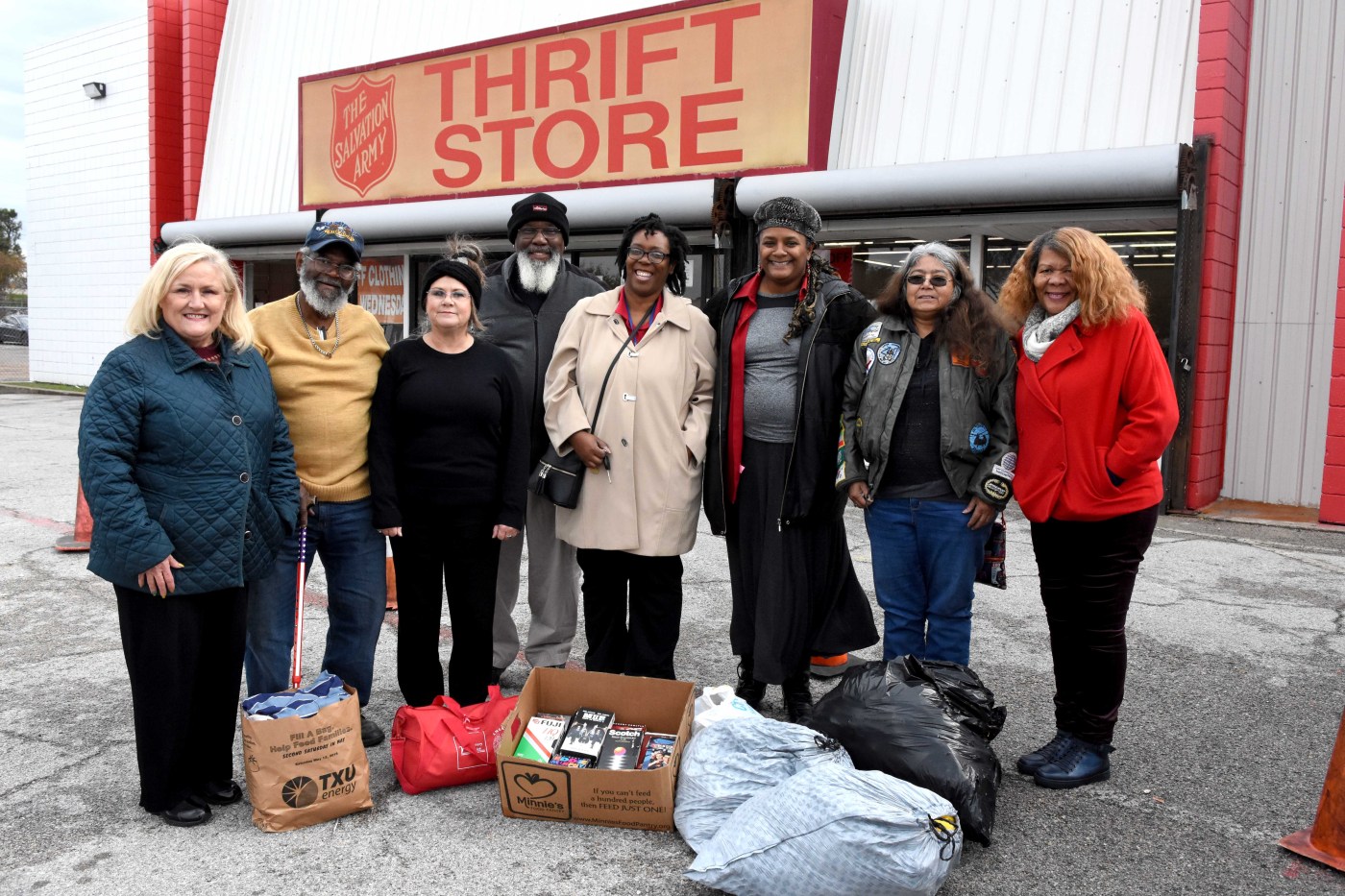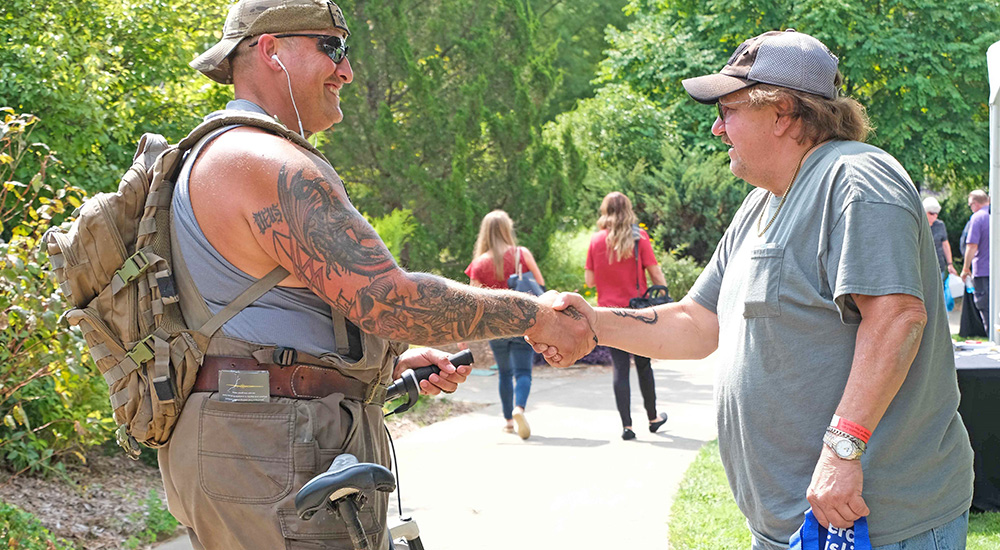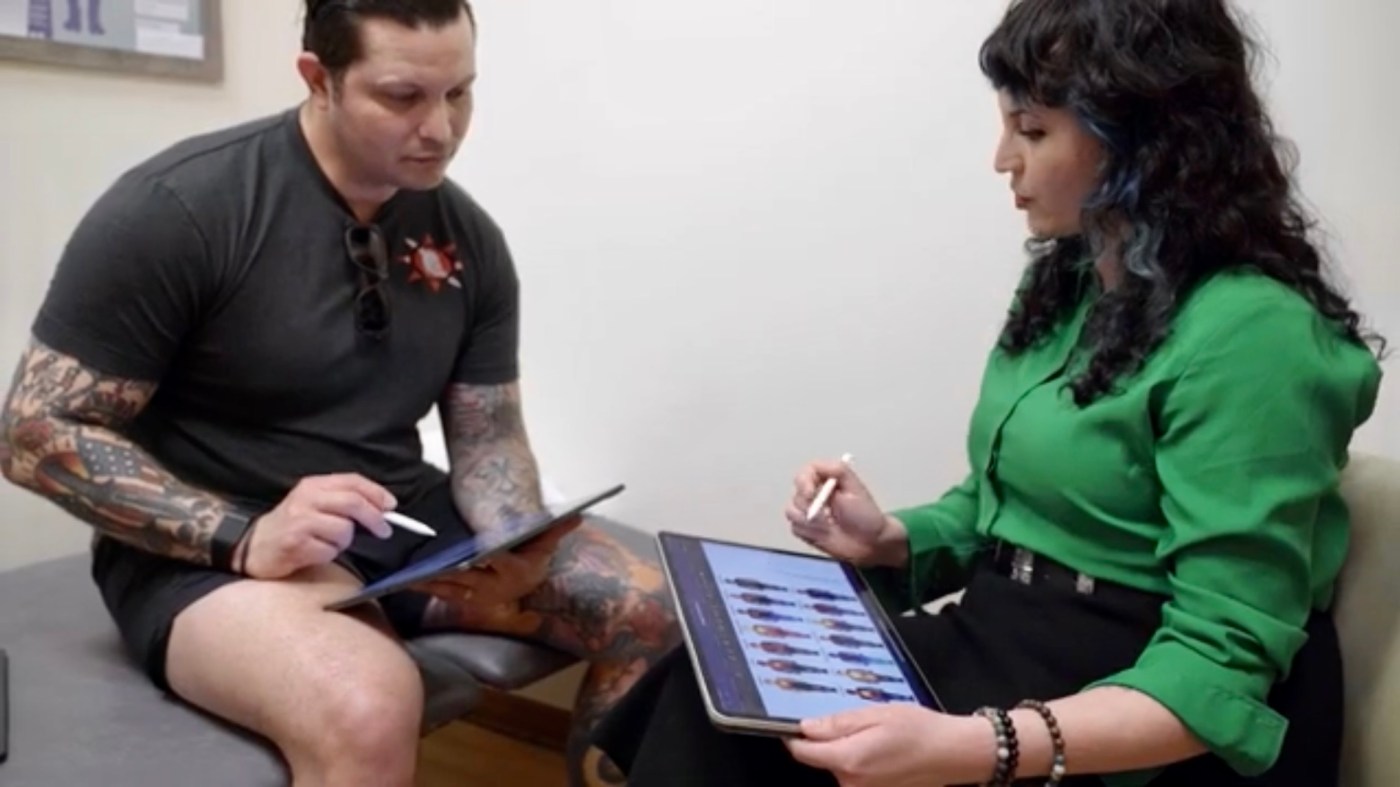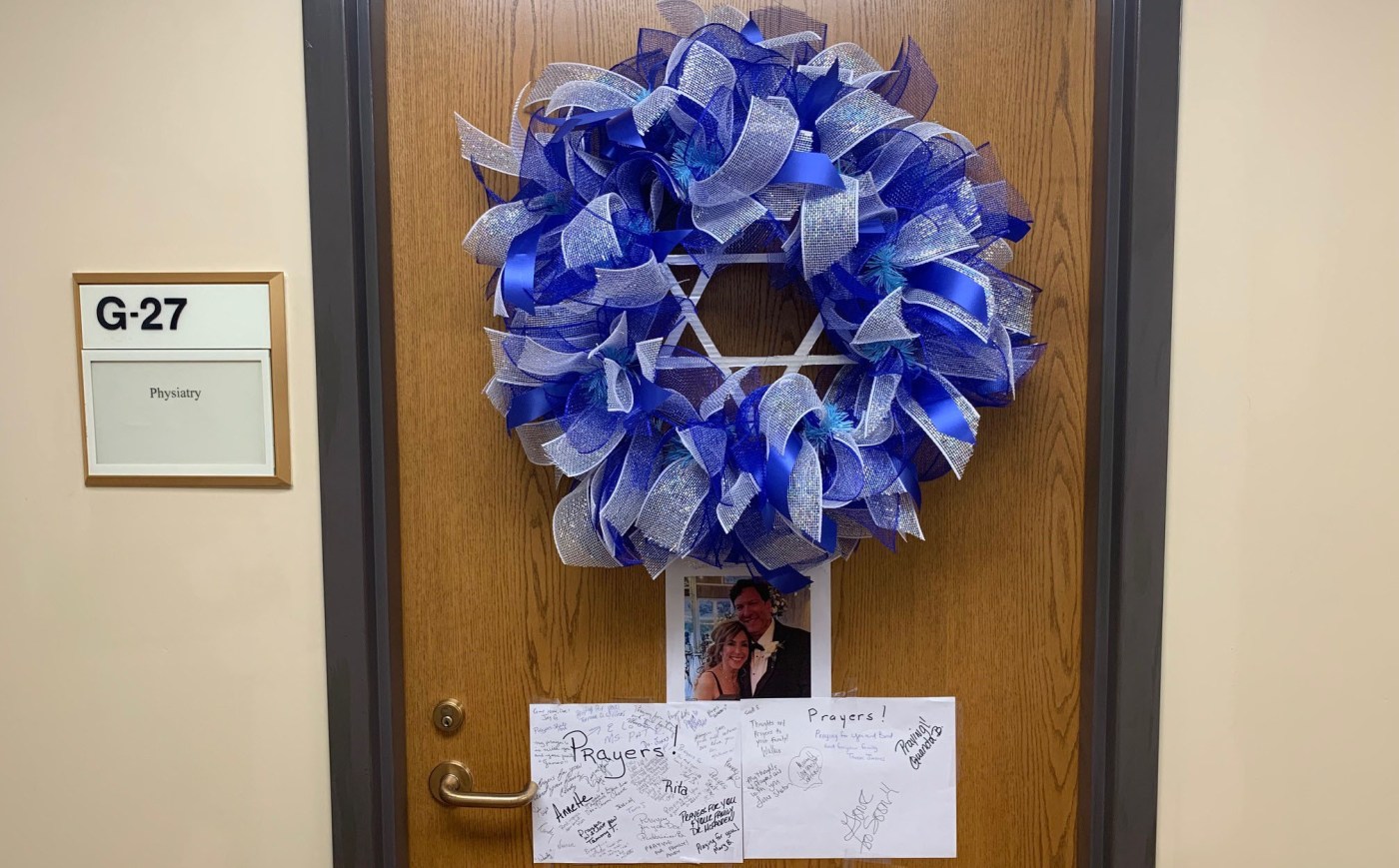Martha Llorens has visited nearly every thrift store in the Dallas-Fort Worth area at least once.
But her visit to one of those brightly lit and crowded stores on this particular day was different from the previous trips. This time she was leaving empty handed.
Llorens served in Operation Desert Storm with the Army as an Avionics Technician. She felt tremendous pride in being able to perform the job that she had trained to do in the most hectic of times. When the time overseas ended and life resumed a normal pace, Llorens had a hard time readjusting.
These new difficulties manifested themselves into a way unique to most people: hoarding.

Army Veteran Martha Llorens unloads items from her truck to donate to a local thrift store. Llorens gathered items from her home after attending the Clutter Busters and Treasure Seekers class held at Dallas VA Medical Center.
“I used to keep a very neat house, but when I came back from overseas the last time, I was a totally different person,” said Llorens. “I just didn’t care about anything.”
Clutter Busters and Treasure Seekers
Llorens attends VA North Texas’16-week self-help group called Clutter Busters and Treasure Seekers, a class to develop different strategies and skills to deal with compulsive acquiring, saving and hoarding.
Hoarding disorder is relatively rare and the exact cause is not known, though stressful life events and tragedies like the loss of a loved one are linked as risk factors. Nationwide, fewer than 200,000 new cases of hoarding develop each year. For Veterans like Llorens, battling the disorder meant committing to help and attendance in a group like Clutter Busters.
“I took the class because I really needed it,” said Llorens. “I have a lot of stuff and I needed something to help me get back my life, to where I was before.”
Sheryl Fairchild, VA North Texas Senior Clinical Social Worker, leads Clutter Busters with fellow social worker, Donna McCollum. The two focus on the meaning of possessions and talk about the difference between collections, clutter and hoarding with the Veterans.
“Some people with hoarding disorder lose contact with people and their possessions become their family,” said Fairchild. “They think they own their possessions, but their possessions end up owning them.”
Letting go of personal possessions is very challenging for Llorens.
“I have stuff I bought and never even opened,” said Llorens. “When I got it, I said I would open it later, and later never came.”
Driven by family
Fairchild and McCollum brought Llorens and other Veterans from the class to a thrift store to donate items the group had gathered from their homes. The items ranged from clothing to VCR tapes. For Llorens, this was the first donation she had made in a very long time.
“It was hard to let go of some of my things,” said Llorens. “I paid money for these items and it’s like throwing my money away.”
Although it was hard letting go of a small amount of her possessions, Llorens felt good to have reclaimed some closet space and plans to make another donation very soon. The real motivation for the breakthrough donation made while attending Clutter Busters is driven by her family.
Llorens family has not visited her much at the epicenter of her hoarding disorder—her home.
“I want my life back–I took this class because my house is out of control and I can’t let it get any worse,” said Llorens. “I want my kids to be able to come to my house and not be embarrassed, and I want them to bring my grandkids.”
Jennifer Roy is a public affairs specialist at VA North Texas Health Care System
Topics in this story
More Stories
Health summit gave Veterans opportunities to visit with VA staff and meet community organizations that provide services to Veterans.
STAR is a rehabilitation program for Special Operations Forces service members and Veterans. It facilitates recovery, function, reintegration, and transition.
Dr. Cohen left his mark on the specialty care clinic staff and on the Tuscaloosa VA Medical Center as a whole.







Nice update
When people perputrate the color of law and set up sham powers of attys to devour estates
After I retired from the Army, I pretty much got rid of everything from the military. I kept my old OD Green field jacket as well as my BDU jacket. That’s all.
I love to see the vets being helped. It’s shameful though that the families that are left when the vet passes are considered throw away people.
As a disabled widow of a disabled vet my help has been minimum and soon I will be homeless paying back uncle sam.